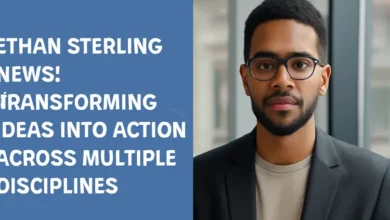Tulsi Gabbard Rejects Reports of Lackluster Senate Support for DNI Role

Tulsi Gabbard, a former U.S. Representative and one-time presidential candidate, recently came under scrutiny following reports suggesting that Senate support for her potential nomination as Director of National Intelligence (DNI) was less than enthusiastic. Gabbard, however, has firmly rejected these claims, calling them misleading and speculative.
This post takes a closer look at the controversy, examining Gabbard’s political journey, the importance of the DNI role, and the implications of these reports on her political future.
Who Is Tulsi Gabbard?
Before we dissect the Tulsi Gabbard Rejects Reports of Lackluster Senate Support for DNI Role, it’s essential to understand who Tulsi Gabbard is and why her potential appointment as DNI has sparked interest and debate.
Gabbard is a former Democratic congresswoman from Hawaii, serving from 2013 to 2021. Marking several firsts in her career, Tulsi Gabbard was the first Samoan American and the first Hindu elected to Congress. Known for her independent stance, Gabbard made headlines for challenging her party on various issues, including foreign policy and healthcare reforms.
Her national prominence surged during her 2020 presidential campaign. Her debate performances stood out, particularly for her criticism of U.S. military interventions abroad. While her bid didn’t result in a strong showing at the polls, it solidified her reputation as a figure willing to disrupt the political status quo.
Having served in the Hawaii National Guard, including two tours in the Middle East, Gabbard’s military background has been a key feature of her public persona. It also adds credibility to her understanding of intelligence and defense-related matters, which could make her a viable candidate for a role like DNI.
The Significance of the DNI Role
The Director of National Intelligence is among the most critical positions in the U.S. government’s national security structure. Established post-9/11 to address intelligence-sharing challenges, the DNI oversees the 18 intelligence agencies safeguarding the nation’s security.
With responsibilities including coordinating intelligence efforts, advising the president, and presenting national security assessments, the DNI is expected to have exceptional intelligence, diplomacy, and high-level decision-making expertise. Importantly, the role has become particularly visible in recent years as it has dealt with issues like election interference, cyber threats, and foreign espionage.
Given Gabbard’s military service and outspoken views on foreign policy, it’s unsurprising that her name would be floated for such a key role. However, the road to confirmation invariably involves rigorous Senate scrutiny and strong bipartisan backing—two factors that have reportedly come into question in Gabbard’s case of Tulsi Gabbard Rejects Reports of Lackluster Senate Support for DNI Role.
Reports of Lackluster Senate Support
Recent reports from political insiders have suggested that Gabbard’s nomination for the DNI role would face significant resistance in the Senate. Anonymous sources claim that her unconventional positions on foreign policy and her often tense relationship with her own Democratic Party could alienate critical Senate votes.
For example, her past criticisms of U.S. involvement in Syria and Afghanistan have been polarizing. While some see her views as a refreshing critique of endless military engagements, others perceive her stance as overly dovish and out of sync with the broader national security community.
Tulsi Gabbard Rejects Reports of Lackluster Senate Support for DNI Role, dismissing them as baseless and politically motivated. Tulsi Gabbard has accused certain media outlets and insiders of attempting to tarnish her reputation through speculative narratives rather than objective assessments of her qualifications.
Potential Reasons Behind Senate Resistance
The divide over Tulsi Gabbard’s suitability for the DNI role may stem from several factors:
1. Perceived Partisan Challenges
Though celebrated by her supporters, Gabbard’s independence has sometimes alienated both Democrats and Republicans. Her decision to endorse Bernie Sanders in 2016 against Hillary Clinton placed her at odds with the Democratic establishment. Similarly, her direct criticism of figures like Kamala Harris during the 2020 Democratic primaries might have further strained relationships within her party.
2. Controversial Foreign Policy Views
Critics argue that Gabbard’s willingness to meet with Syrian President Bashar al-Assad undermines her credibility on the world stage. While Tulsi Gabbard positioned it as an effort to promote peace, others accuse her of legitimizing authoritarian regimes.
3. Unconventional Approach to Politics
Gabbard’s tendency to defy traditional political alignments has led to skepticism about her leadership in collaborative, bipartisan roles. More than many other positions, the DNI relies heavily on trust and cooperation between the executive branch and Congress.
Contrasting Opinions and Public Reaction
While some political observers find these concerns valid, others argue they represent an unfair dismissal of a qualified candidate. Gabbard’s advocates highlight her combat experience, firsthand understanding of the complexities of war, and refusal to cater to political interests as evidence of her suitability for a role like DNI.
Additionally, public reaction to the reports has been divided. Supporters accuse the media of bias and a double standard when judging Gabbard, while critics see this as an affirmation of why she may not be the best choice for a role of such magnitude.
Impact on Tulsi Gabbard’s Political Future
Regardless of the outcome, this episode will unlikely end Gabbard’s influence in U.S. politics. While the post of DNI might be out of her immediate reach, the attention surrounding her candidacy could bolster her visibility and appeal as a political figure who defies convention.
Indeed, Gabbard’s relative youth and dynamic approach suggest she has plenty of time to carve out a role in public service that aligns with her interests and values. Whether through appointed roles, political commentary, or future campaigns, she remains a figure to watch in the evolving landscape of American politics.
Also Read Biden Vetoes Federal Judges Bill
What Are Your Thoughts?
Reports of Tulsi Gabbard’s purported lack of Senate support for the DNI role touch on deeper questions about the intersection of politics, qualifications, and bipartisan cooperation in the U.S. government. What makes a candidate viable for a role of such responsibility? And to what extent should political history influence these decisions?
Share your thoughts in the comments—we’d love to hear your perspective.




One Comment